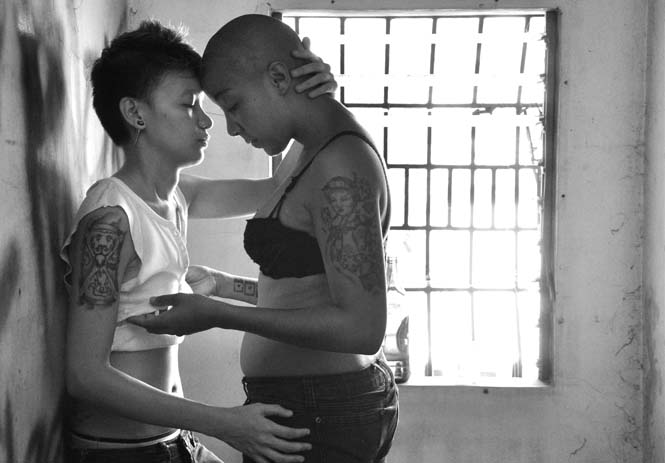Great Connections Podcast
I did my first guest appearance on a podcast recently and while I was mortified throughout the entire process, I actually enjoyed it and don’t mind the results. My appearance in this pod actually inspired me to start my own.
I spoke about life as a LGBTQ+ Filipino abroad, the challenges I faced as a queer woman of color, as well as the things I learned as an out lesbian both in the Philippines and in New York.
You can listen to it here:
Notable quotes from the pod:
Religion is so deeply ingrained in us, in our families, culturally. Catholicism has so much control in everything and in how we think. Not even talking about being gay, even in being straight, we are raised to believe that sex is taboo, it’s shameful, and you’re only allowed to enjoy it if you’re a married couple, and even then you’re not even allowed to enjoy it. It’s something sinful, and there’s just such a stigma about sex and it’s forcing people to, first of all, not educate their children, and for teenagers to not educate themselves. It’s caused a lot of unplanned pregnancies, unplanned families, second and third families, affairs, and broken marriages, because you’re not allowed to express yourself, discover, experiment. So even in straight or heteroseual couples, there is such a stigma about sex. (10:57)
When it comes to gay people, (the stigma) is doubled and tripled because not only are you not allowed to have sex, you’re really not allowed to exist. You’re not allowed to defy gender norms, and then the topic of gay sex, you’re taught that it’s completely wrong and shameful. (12:10)
How do you reconcile religion with being gay? I do feel the struggle that everyone has being Catholic or Christian and being gay, or bisexual, or trans. It’s taught that you’re almost disgusting and that you shouldn’t exist. You should change because it’s completely wrong and you’re going to hell, and you don’t deserve love. To me that’s such a painful thing to teach your children, for any reason, right? Whatever they are, to actually tell your own child that who you are or how your act or how you dress I think is the most hurtful and terrible parenting that you can do.(12:40)
I do get a lot of questions about (reconciling religion with being gay), and the way I answer it is, I say…I have a lot of friends who are gay and religious and the way that they’ve done it is to separate their faith from their religion as an organization made of people, right? Because your faith is your relationship with your supreme being or your god, and it’s your one on one relationship and how your god guides you and how he or she or they give you comfort, and separate this from the religion itself, which is an organization made of humans, and they have their own motivations, and a lot of that also has to do with making money, putting up a church, organizing people, and these are usually the people who make these rules…So for the faithful who are also gay, you have to come up with a certain kind of compromise to accept that your religion is not going to accept you and still have your own separate relationship with your supreme being, or have a different way of expressing your spirituality that doesn’t depend on any organization making rules.(14:20)
Any person going through religious struggle and being gay should realize that if your god really loves you, there is no way that he or she or they would make you the way you are and make you disgusting or not worthy of love. That’s not a characteristic of any god in any faith. Once you realize that you are worth the love and consideration and acceptance and you have that own conviction, you can stand up to your own religion or have your own way of expressing your religion. (16:25)
Without you first accepting yourself, and having that strong conviction that nothing is wrong with you, there is no way that you can convince anyone else, especially not anyone else who loves you that what you’re doing is right. People say, “Oh my parents won’t accept me because I’m like this,” but if you’re really convinced that you’re really not doing anything wrong, then you would be proud and you would just say, “If you accept me then you do, and if you don’t, I can’t do anything because this is me, and I can’t do anything because this is the way I am.” And then the person you’re talking to, whom you’re trying to get acceptance from, can then decide if they want to be part of your life or not. (17:07)
If you approach someone and say, “O masama akong tao, bakla ako,” well how do expect this person who loves you to be happy for you when you’re miserable being gay? Your parents will just say, “You’re suffering! It just makes you miserable! Why am I going to be happy for you, why am I going to support you when you’re just going to be sad, you’re just going to get sick, or you’re just going to get your heart broken?” You have to start with yourself. The moment you have that conviction and you accept yourself and you love yourself, and you’re truly convinced that there is nothing wrong with you, then the rest of the world will follow. But until you get to that point, no one will believe you, and no one will accept you, because it doesn’t make you happy because you don’t accept yourself. It’s pretty logical, but it’s very hard to do. (17:54)
When I encounter people who say that the Bible says being gay is wrong, I tell them that your religion also tells you that pre-marital sex is wrong but you don’t have a problem having sex right? So why is it different? Because you yourself have separated your faith from your religion and the rules of your religion. So how come gay people can’t do the same? Or how come you can’t separate those things for gay people? There are so many things that you disregard in your religion: pre-marital sex, contraception, eating meat during lent, answering back to your parents, all these stupid things. We don’t have a problem breaking those rules, but we have a problem when gay people break rules or if they have a separate faith that’s not part of your religion, but you’re allowed to do the same? Why? How come you can make exceptions and how come we can’t make exceptions? (19:50)


